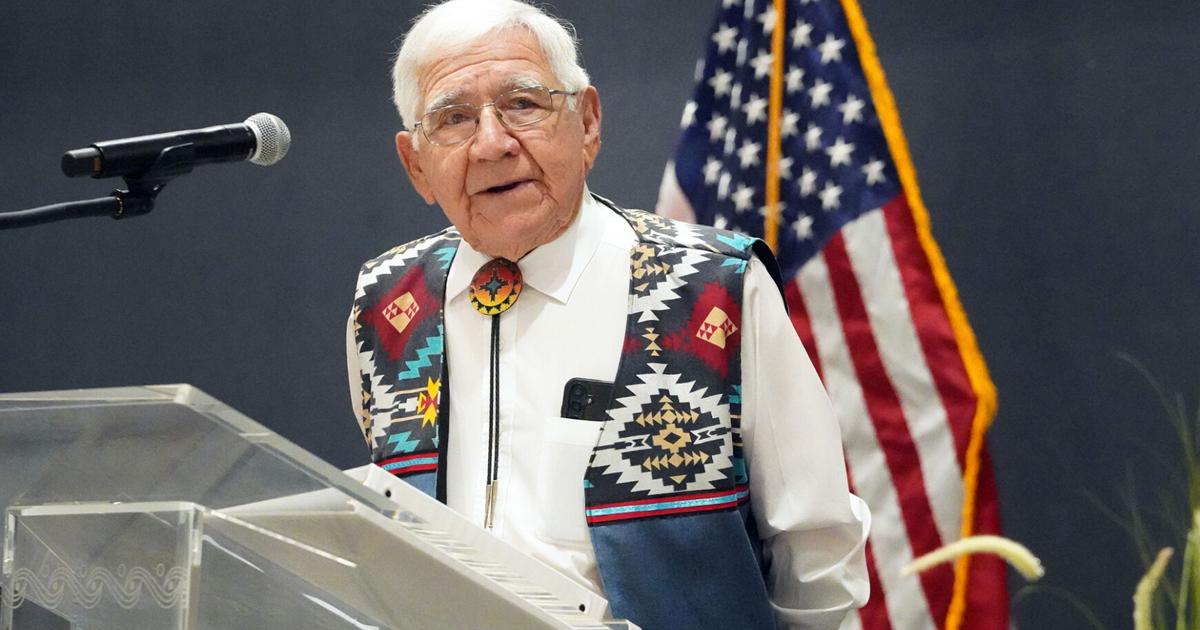Copyright cherokeephoenix

TAHLEQUAH – On Oct. 23, the Cherokee Nation hosted its annual First Language and Advanced Speakers Gathering at the Chota Center and announced new initiatives in the tribe’s efforts to perpetuate the Cherokee language. The event welcomed first language speakers and second language learners to eat lunch as Principal Chief Chuck Hoskin Jr. signed directives and workforce policies to further language preservation. “Six years ago, the circumstances were much different. We were facing the continued erosion of our language. We faced a lot of uncertainty with our language,” Hoskin said. A directed $2.3 million from the tribe’s Public Health and Wellness Fund will support a Peer Recovery Program and a new home care program for fluent speaking elders in vulnerable health status. More funds will go into Speaker Services for home repair and continued support will go toward the Little Cherokee Seeds Program, a partnership the tribe has with the American Indian Resource Center in Tahlequah. “We’ll use those funds to continue the Peer Recovery Program that’s helping fluent speakers who are struggling with addiction or other behavioral health problems. We cannot revitalize this language if we have fluent speakers who are struggling in the shadows,” Hoskin said. New policies within the CN workforce will incentivize language learning among employees. Under qualifying program guidelines, entry-level second language learners can receive a 50-cent-per-hour wage increase and a $200 bonus; fluent Cherokee speaking employees can qualify for a $2.50-per-hour increase with a $1,000 bonus. “There is something transformative happening,” Hoskin said. “What we do now, what we do today, will determine whether at the end of this century the language remains with us.” Cherokee speaker and Tribal Councilor Melvina Shotpouch said events for speakers helps support them and she can help Cherokee-speaking constituents with any issues they may have. “I get a lot of calls, especially from people in the remote areas that are either full blood or that’s that their language,” she said. “They feel like they can converse with me if they have to … to ask me what they’re wanting or needing. I’m thankful that I can be there to help with things that they don’t really understand.” The CN has invested in language preservation since 2019 with the signing of the Durbin Feeling Language Act, investing nearly $70 million so far in language capital projects. “We’re so blessed to be in a place where we can invest into language. We’ve invested more dollars into language initiatives that ever before in history, and we’re already planning for the future to be able to increase that more,” said Deputy Secretary of State Canaan Duncan. “I think that the more events we have, the more initiatives we have centered around language, the more supported our speakers will feel.”



